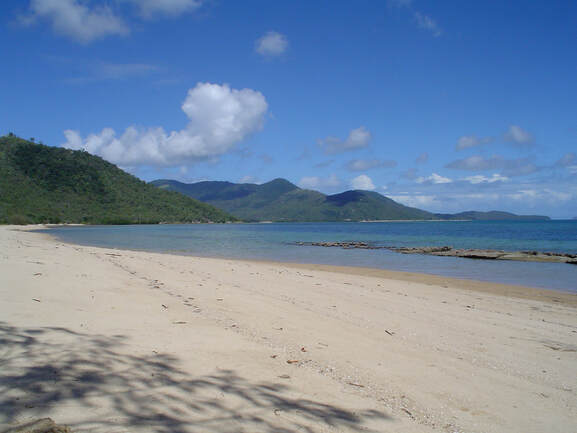‘This just doesn’t happen here’: Remembering Cameron Doomadgee and the Palm Island Protests4/6/2020
Issue 14, Volume 17 WOLFGANG HENDRICKS As we watch Minnesota burn following the death of George Floyd, from afar, it may be easy to incredulously dismiss these events as those that could only occur in lawless America with their guns, MAGA hats, and shocking welfare system. But with over four hundred First Nation people’s deaths in custody, and a hugely disproportionate Indigenous incarceration rate, it is time Australia took a good look at itself. The custody death of Cameron Doomadgee in Queensland 16 years ago prompted racially-fuelled unrest of our own, but very little has come of it since. The current protests across the States must serve as an essential prompt for us to examine our own track record. On 19 November 2004, on the picturesque Palm Island located off the coast of Queensland, Mr Doomadgee (also known as Mulrinji) was arrested for drunkenness and swearing at police. His companions at the time of the arrest attested that he was a cheery drunk; “happy-go-lucky” Mulrinji was allegedly singing along to “Who Let the Dogs Out” when Senior Sergeant Christopher Hurley hauled Cameron off to Palm Island police station. At the police station there was a small scuffle and SS Hurley was punched in the jaw.
45 minutes later Mr Doomadgee was dead. His liver was almost split in two, his ribs were broken, he had a black eye and a ruptured spleen. The officials assigned to the investigation were collected from the local airport by Hurley and dined at Hurley’s own home during their visit. The autopsy report produced suggested that Mr Doomadgee’s injuries were the result of a fall from a step four inches high, consistent with the police tale of events. Two years later, a much-delayed coronial inquest report would be released, concluding that Mr Doomadgee was killed from injuries that were inflicted by Hurley. Mr Doomadgee’s injuries have since been likened to those that could be sustained in a plane crash. The Indigenous residents of Palm Island were informed of the unbelievable initial autopsy report a week after Mulrunji’s death. Outraged by the total lack of justice, the residents of Palm Island demonstrated in protest at the police, burning down the police station, courthouse, police barracks and Hurley’s home. Police, their families and Palm Island’s non-Indigenous residents were evacuated from the island. Under the Public Safety Preservation Act 1986 (Qld), an emergency declaration was issued, prohibiting Indigenous residents of Palm Island from travelling to or from the island, their home, while authorities and non-Indigenous residents were free to travel as they pleased. Approximately 100 police officers were flown into the Island (population of 2,000 people), many of them heavily armoured. On the morning of 27 November, the police contingent began entering and searching homes on the island, arresting the inhabitants, including a 13-year-old boy. At no point were arrest warrants issued for the individuals apprehended. The police executed these searches of family homes in ballistic vests, balaclavas, and helmets while equipped with gas masks, flash grenades, assault rifles and backup pistols. In June 2007, SS Hurley was found not guilty of manslaughter and assault, contrary to the 2006 coronial report findings. A further coronial report in 2010 found that Hurley abused Mulrunji and that the police had colluded to protect each other. Police chose not to follow subsequent recommendations for disciplinary conduct against Hurley and the officers who investigated the death, (in a decision that described as “incomprehensible” by the Crime and Misconduct Commission). Deputy Police Commissioner at the time, Kathy Rynders, awarded some of the officers involved in the 2004 events with bravery awards, and following the above disciplinary recommendations, declared the officers only required managerial review. Hurley saw out the remainder of his career on the Gold Coast and is now retired. Eric Doomadgee, Mr Doomadgee’s son, committed suicide two years later, aged 18. Patrick Bramwell, a witness to Mr Doomadgee’s arrest, committed suicide three years later, aged 24. One of those arrested in the aftermath of Mr Doomadgee’s death was Lex Wotton. Sentenced to six years imprisonment by an all-white jury, his speech to the community was labelled a ‘call to arms’ by the Queensland Department of Public Prosecutions. When Wotton was paroled in 2010, it was with conditions that banned him from speaking to the media and from attending public meetings. 12 years following Wotton’s arrest, in Wotton v State of Queensland (No 5) (2016), Mortimer J found that the above arrests were unlawful, that the police response was discriminatory, and that “police acted in these ways because they were dealing with an Aboriginal community”. Wotton and his family received around $200,000 in damages. More recently, 447 Palm Island residents have secured a $30 million settlement from the Queensland Government in a class action stemming from Mortimer J’s findings that the police response was racist. Despite this, the Palm Island community still faces persistent discriminatory attitudes from the government and the media. They also remain yet to receive any form of apology from the Queensland Police force. The class action settlement was publicly denounced by the Queensland Police Union, which described the settlement as a “slap in the face”, and a “cash windfall” to “convicted criminals”. The media has also endorsed this attitude, with Channel Nine (Queensland) running an “Exclusive”, making accusations of taxpayer funds being squandered on flashy cars and boats in the Indigenous community. While ABC’s Media Watch condemned the inaccurate, paternalistic, and racist report from Channel Nine, damage from such representations - particularly from mainstream outlets - likely already would have been done. This is not an American epidemic. These events happen too often and usually with less prominent media coverage here in Australia. The very least we can all do is use this opportunity to reflect upon our attitudes and identify the institutionalised privileges that allow this to occur. Wolfgang Hendricks is a third year JD student. Comments are closed.
|
Archives
October 2022
|



